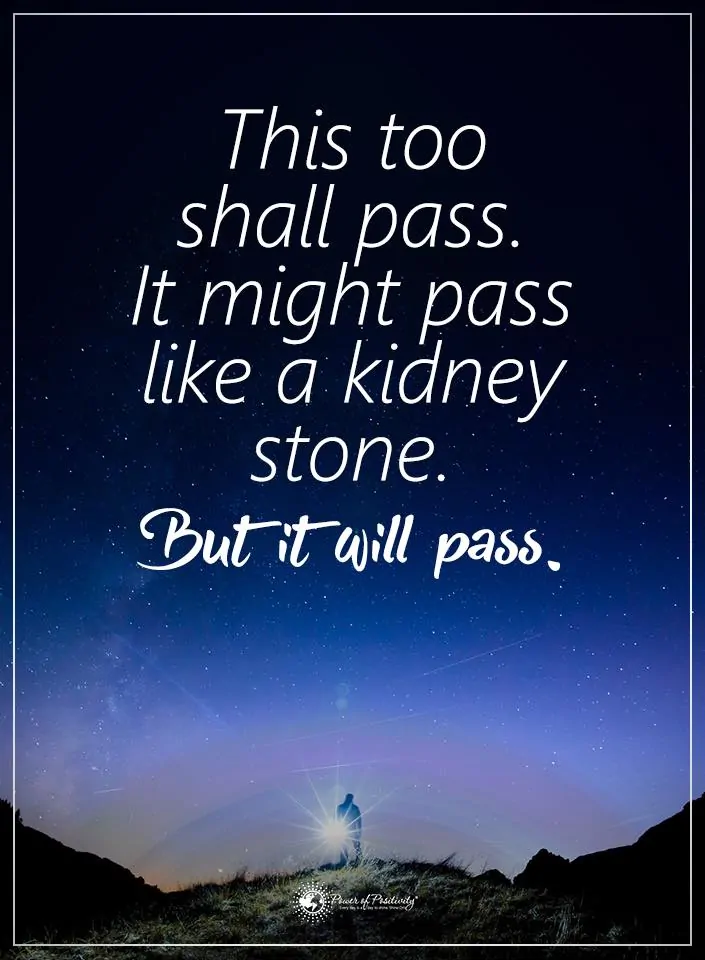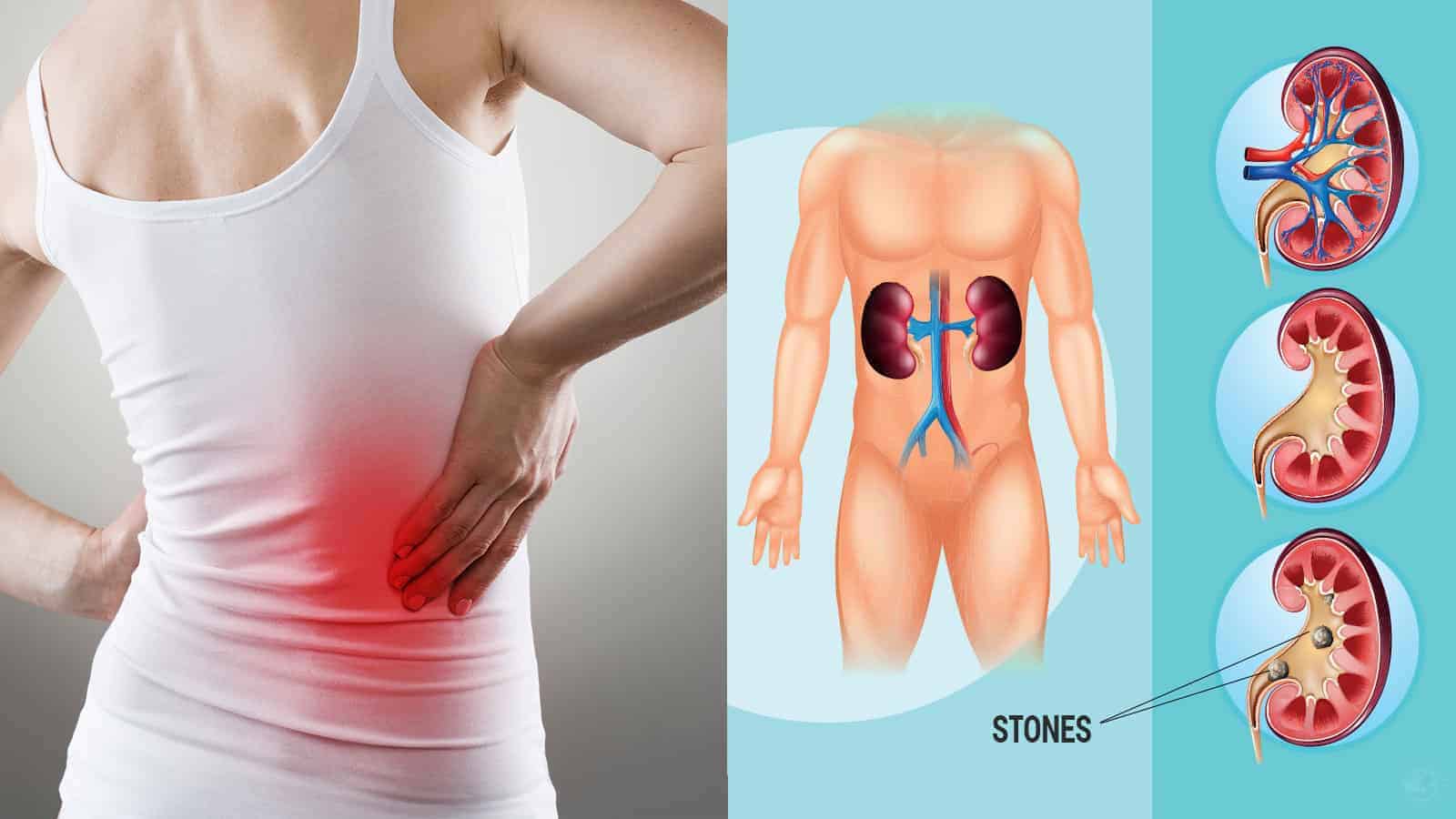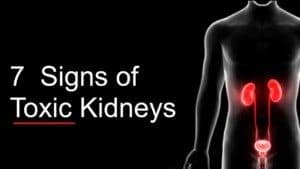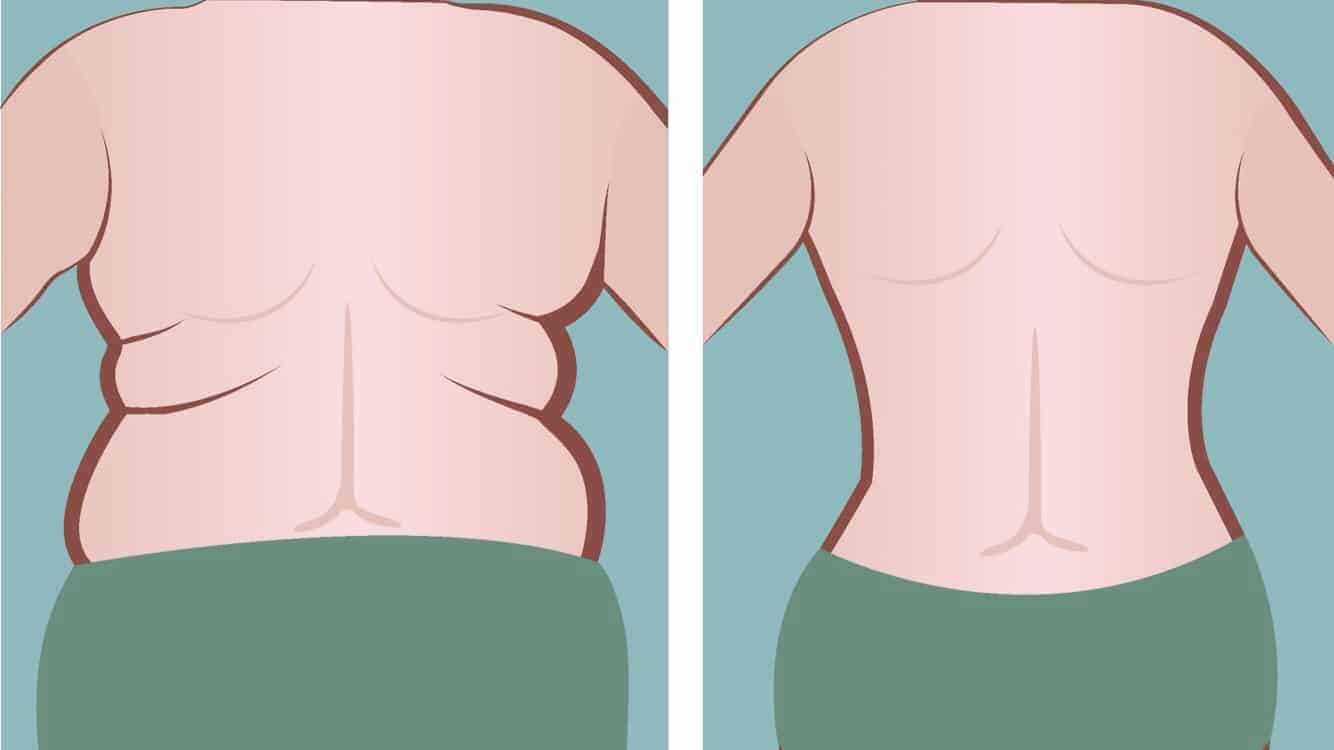Whenever the minerals and salt contained in your kidneys start to crystallize into stones, these are called kidney stones. This is usually due to an imbalance. When you’re lacking water or urine in your system, those minerals start sticking together. Once they’ve solidified, these stones can start to break off and flow into your urinary tract every time that you use the restroom.
Passing stones can be extremely painful, depending on their size. Some can be as tiny as a pinhole while others can expand as far as 10 mm. Smaller stones that remain in the kidney usually go unnoticed but once a stone travels from your ureter to your bladder, the discomfort begins.
Fortunately, having a stone in your kidney usually causes no permanent damage if you catch them on time. Situations will vary, but standard treatment includes drinking lots of water to pass the stones and taking pain medication when necessary. However, in more severe cases, surgery will be needed to remove stones that have become stuck in the urinary tract, stones that have begun to cause complications, or if you have an infection.
If you have been experiencing excruciating pain, especially while urinating, you may be experiencing kidney stones. Here are 8 symptoms that you may experience while passing stones.
8 Symptoms of Kidney Stones

1 – Back, belly, or side pain
The pain from kidney stones has often been described as one of the most painful experiences that one can imagine, frequently compared to childbirth or being impaled. This pain is so severe, it is responsible for nearly 1 million visits to the emergency room every year. (1)
The pain usually begins when the accumulated mineral deposits in the kidney start traveling into the ureter – this is the tube that transports urine from your kidneys to your bladder. Because this tube is very narrow, the stones can create a blockage, causing a build-up of pressure inside of your kidney.
These blockages will result in intense pain, a distress signal from your body alerting you that kidney has an obstruction. The most intense areas will be along your side, under your ribs, or in your back. Eventually, as the stone passes, it will start navigating to other areas, such as your stomach or groin. The pain usually happens in waves, due to a contraction of your uterus as you try to push the stones out.
2 – Pain during urination
If you notice that you are having a sharp or burning pain during urination, this could be another sign that you are passing stones. This happens because your body is trying to move them through your urinary tract.
However, painful urination could also be a symptom of a urinary tract infection as well. Just to be sure, ask your doctor for a urine test. Blood or imaging tests can also be administered to detect the presences of stones in your kidney.
3 – Constantly needing to urinate
Frequent urination is another symptom that you should look out for. This signals that your stones are moving to the lower part of your urinary tract. Constant bathroom breaks are also another symptom that kidney
stones share with UTIs, so you may also need your doctor to check for infection in your urinary tract.
4 – Blood in urine
A common symptom associated with passing stones is hematuria, also known as blood in the urine. The color of the blood will vary from pink, red, or brown. Sometimes, this blood may only be detectable through a microscopic examination of your urine or with dipstick testing.
5 – Your urine is cloudy or smells unpleasant
Because stones in the kidney often form due to a lack of hydration, they can affect the odor of your urine. If you notice that the smell is extremely strong and unpleasant, it is a sign that you may have an infection that needs to be treated. And usually, this is the case. Many people who come in for stones tend to also have UTIs.
Furthermore, the bacteria that is responsible for UTIs can also alter the smell of urine. In addition to a bad smell, you may notice that it is also cloudy looking. Cloudiness is a sign that you have pus in your urine, which is another symptom of infection in your urinary tract.
6 – Low urine volume
Depending on the size of your kidney stone, you may experience an obstruction in your ureter. This could ultimately stop the flow of your urine and cause your kidneys to swell.
If you notice that your urine has dwindled down to a trickle or has stopped completely, this is considered a medical emergency and you get help immediately. You will need assistance with having it removed before it causes complications.
7 – Nausea and vomiting
There are several reasons that you could be experiencing nausea and vomiting when you have stones in your urinary tract and kidneys.
Passing stones is an extremely painful experience. For some, their body’s natural response to intense pain is vomiting.
Another reason that you may experience nausea is due to urine blockage. When you’re unable to pee, it can start to back up in your kidney. As a result, you will experience swelling and stretching of your kidney tissue.
Lastly, kidneys and gastrointestinal tract share nerve connections. When the stones start accumulating in the kidney, they can trigger nerves in your GI tract, causing you to feel sick.
8 – Fever and chills
One of the more serious signs that you have stones in your kidney is experiencing fevers and chills. This is a sign that you have a kidney infection. This is also an indication that there may be more severe issues going on so you should contact a doctor immediately.
What causes kidney stones to develop?
How do stones develop inside of your kidneys? They happen when there is a decrease in urine and an excess of minerals. In most cases, the stones are made up of calcium but other compounds that form stones include uric acid, cysteine, and magnesium ammonium phosphate.
This can happen due to the following situations:
Dehydration and Reduced Fluid Intake
Urinary Tract Infections
Metabolic Disorders
Diabetes
Medications
Gout
Dietary Factors
Can kidney stones be prevented?
If you’ve had stones in your urinary tract before, you already know that it is better to prevent them from happening rather than having to undergo treatment. It’s extremely helpful to drink lots of water because dehydration can lead to their formation.
Also, the foods that you eat influence the likelihood of developing them, especially if you’ve had them before. Once you have passed a stone, it can be helpful to have it analyzed to develop prevention measures.
If your stones have more calcium oxalate, it’s advised to stay away from foods that are high in oxalate, such as peanuts, spinach, swiss chard, or beets. Also, eating too much sodium or protein could lead to the formation of cystine and uric acid stones. (2)
While no diet can completely eliminate the development of stones, doctors recommend that people follow the DASH (Dietary Approaches to Stop Hypertension) diet to decrease their likelihood. This diet recommends that you eat more vegetables, fruits, grain, and low-fat dairy while limiting your intake of salt, sugar, and red meat.
What is the treatment for kidney stones?
Experiencing stones passing through your urinary tract is a painful experience but fortunately, most will be dissolved on their own within 48 hours if you drink large amounts of water. During that time, it is recommended that you take anti-inflammatory medications for pain control, making sure that you avoid aspirin or NSAIDs because they increase the risk of bleeding.
Some factors that you must consider when passing stones include the size of the stone, your body size, whether you have an enlarged prostate, or pregnancy. Stones that are less than 4 mm have a much greater chance of passing through your tract with no problem. However, stones that are larger than 9 – 10 mm will need specific treatment to dissolve.
If you do need help passing the stones, you can receive a popular procedure called lithotripsy to help you break up the stones into smaller pieces. This is done using shock waves.
When all other methods fail, surgery is another option. This is usually performed through a small incision in the skin or with a ureteroscope that passed through your urinary tract into your ureter.
Know the Symptoms of Kidney Stones
Kidney Stones are an accumulation of minerals and salt that have started to stick together. This could be due to several reasons, including a lack of hydration as well as your diet.
Once these stones start to develop, they can travel to other parts of your urinary tract, which is often a very painful experience. Other symptoms that may occur while passing stones include a difficulty urinating, cloudy or smelly urine, and nausea.
If you have stones, you should be able to pass them in a few days by drinking ample amounts of water. However, more severe cases will need treatment using surgery or ultrasound for removal.

















